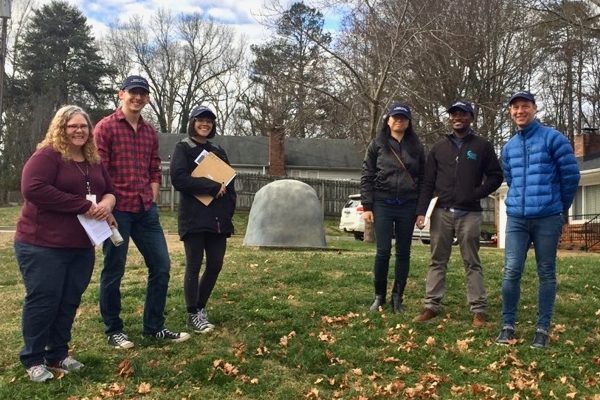University researchers partner with Gaston County health officials on groundwater quality project

UNC Charlotte researchers and the Gaston County Department of Health and Human Services have created the Gaston Water Map, a website with tools that map known groundwater quality in the county. The site also provides resources on best practices households can use to understand their well water quality.
As part of the research work, the researchers mailed more than 8,000 postcards to residents who participated in a prior “Healthy Wells” study, encouraging them to locate their addresses on the interactive maps on the website. The service is free, and all visits are anonymous. Residents can subscribe to the Gaston Water Map and receive updates regarding groundwater quality and resources as they become available.
The website provides an easy way to learn about groundwater quality through maps and rich visualization specific to contextualized information and analytics regarding groundwater quality from private wells.
More than 4 in every 10 households in Gaston County currently use private well water as their primary source of drinking water. The groundwater resources that feed these wells are critically important for human health.
Groundwater quality may be degraded by a range of contamination sources, including agricultural runoff, septic drain fields, and coal ash ponds, and also from naturally occurring trace elements such as arsenic.
“Very few residents do frequent testing for water contamination, in large part because they are not aware of the need and because of the cost,” said UNC Charlotte’s project leader Éric Delmelle, a faculty member in the Department of Geography and Earth Sciences. “By essentially crowdsourcing the data, the residents can access time-sensitive groundwater risk maps and other information to protect themselves and their communities.”
UNC Charlotte’s Center for Applied GIScience, housed in the Department of Geography and Earth Sciences, leads the University’s involvement in the initiative. The interdisciplinary research center uses advanced space-time theories, methods, and technologies in Geographic Information Science to focus on resource and sustainability issues.
The work builds upon the Healthy Wells initiative, funded by the Centers for Disease Control and Prevention, with additional funding from the Water Resources Research Institute of the UNC System. A $49,999 award from the state Environmental Enhancement Grant program also supports the efforts.
Photo: Eric Delmelle, far right, along with other faculty and students visited Gaston County homes to locate wells and enter data about the wells and well water.